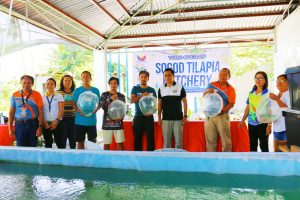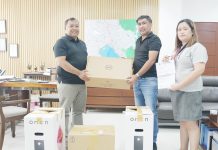
TACLOBAN CITY – The Bureau of Fisheries and Aquatic Resources (BFAR) in the region, in collaboration with the Provincial Fisheries Office (PFO) Southern Leyte and the Tilapia Commodity Program, recently inaugurated a tilapia fingerling hatchery in Sogod town, Southern Leyte, with a total worth of P2.2 million.
Funded under the Bayanihan II Project of the End Local Communist Armed Conflict (ELCAC) and the Typhoon Odette Rehabilitation Program, the hatchery received P1.5 million and P700,000, respectively.
Damaged by Typhoon Odette in 2022, the hatchery underwent rehabilitation and has since produced over 100,000 tilapia fingerlings, benefiting more than 300 backyard fishpond owners, farmers, and fisherfolk in Sogod, Bontoc, and Saint Bernard towns.
BFAR strategically establishes tilapia hatcheries in the region due to the high demand for tilapia consumption and aims to boost inland fisheries production, thus relieving pressure on capture fisheries.
“We continue to support the tilapia hatchery by providing technical assistance,” tilapia commodity focal person Reinafil Bernal said.
PFO Southern Leyte pledges ongoing assistance to the municipal government of Sogod, offering feasible support services and conducting regular site validations to ensure the hatchery’s proper maintenance and operation.
Moreover, they aim for potential technology replication in nearby towns.
In Almeira town, Biliran province, 23 members of the Mamanwa tribe are reaping the benefits of a tilapia farming project provided by BFAR.
Since its turnover to the tribe in the second quarter of 2023, they have harvested 200 kilos of tilapia from a 60-square-foot fishpond.
“We are deeply grateful to BFAR (PFO) Biliran for continuously supporting us. The tilapia farming program is truly beneficial,” said Jay-R Calinawan, Mamanwa tribe leader, expressing gratitude and commitment to passing on aquaculture knowledge to future generations.
Calinawan emphasized that engaging in aquaculture has provided the tribe with additional income, complementing their traditional livelihood activities such as producing rattan-made furniture and cultivating coconuts. (ROEL T. AMAZONA)



